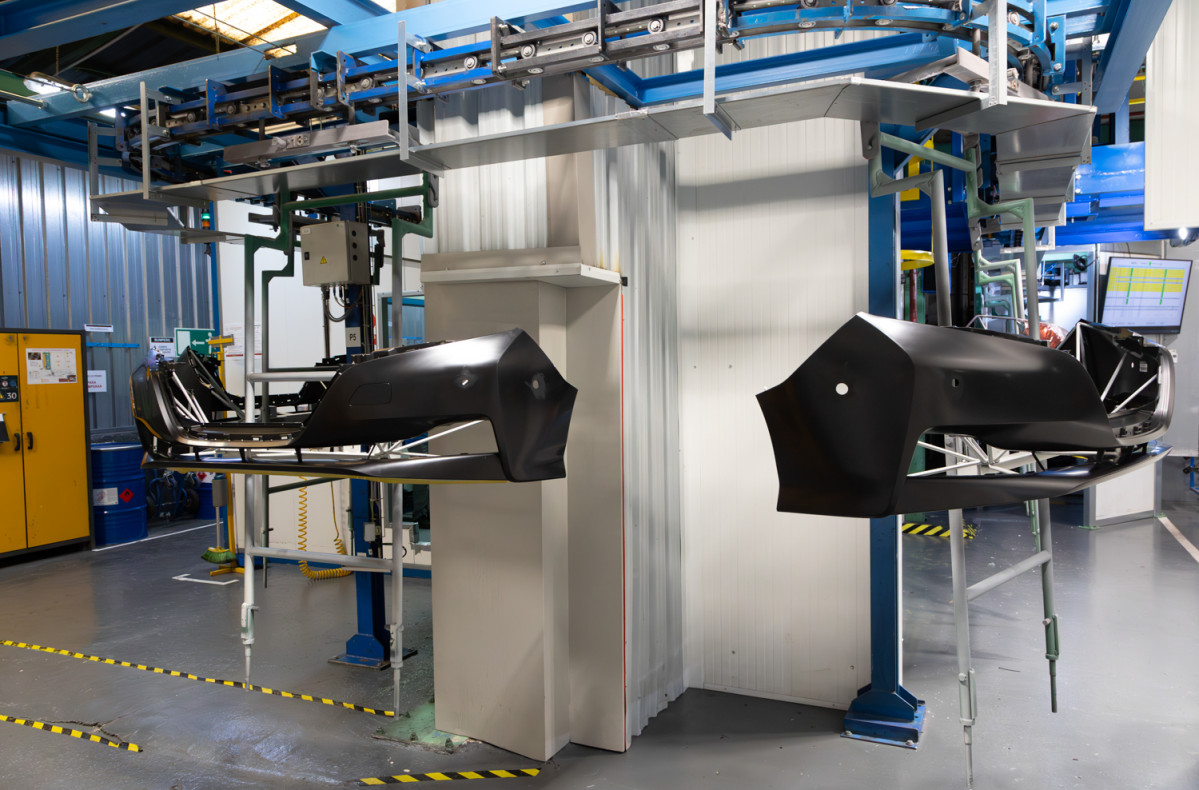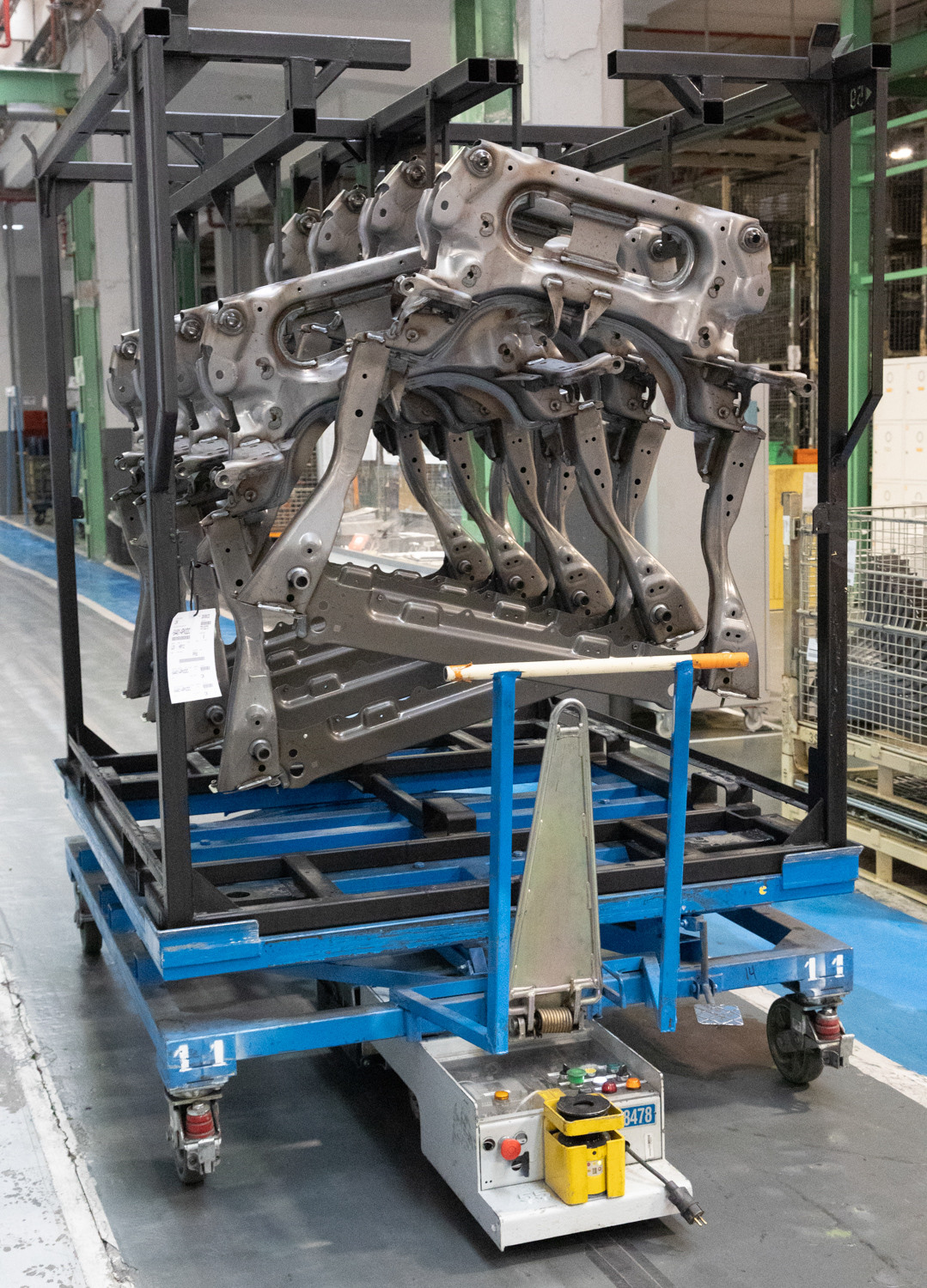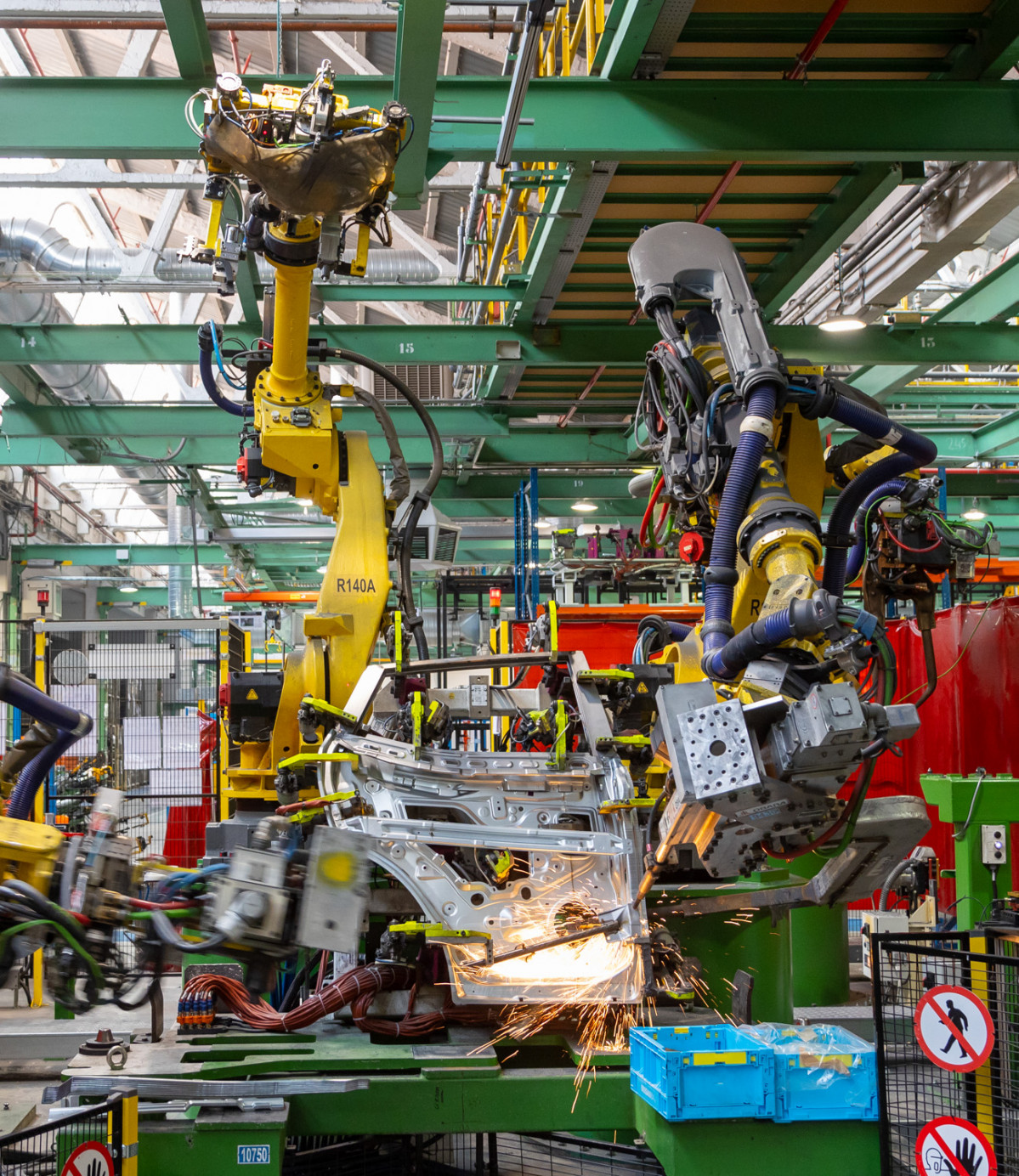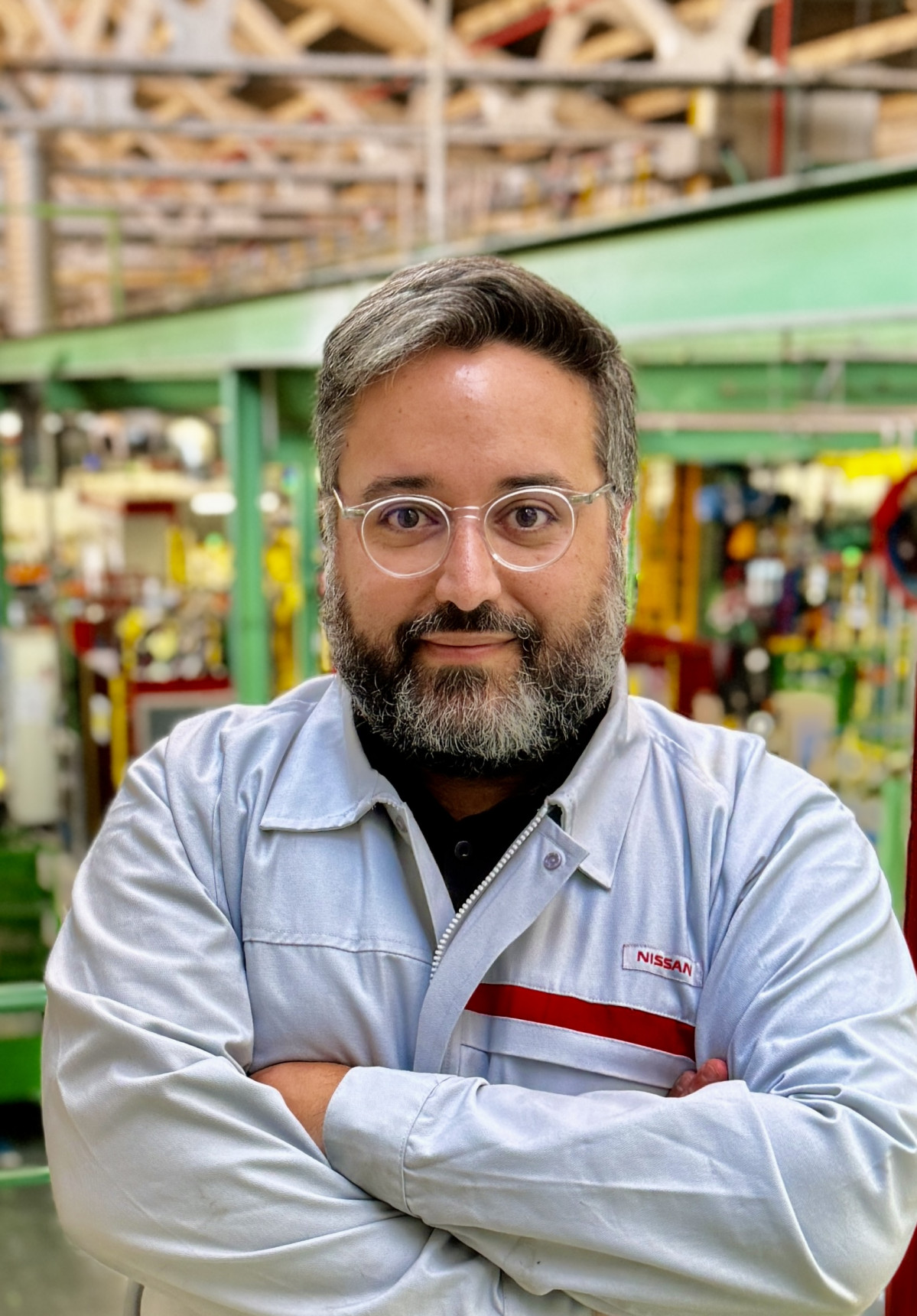Nissan Ávila: global projection, industrial innovation and commitment to sustainability

At a time of profound transformation for the automotive industry, the Nissan plant in Ávila has become an example of how an industrial plant can reinvent itself, grow and lead through operational excellence, technological innovation and sustainability.
Lea este informe en castellano
Report published in AutoRevista 2.403
Nissan Ávila has established itself as a genuine success story of flexibility and competitiveness in the manufacture of components for spare parts and, to a lesser extent, original equipment. It is embarking on a new stage of expansion and development of new business lines based on efficiency and sustainability. Today, Nissan Ávila is not only a leader in its activities within Nissan, but also projects itself to the world with a solid, flexible industrial proposal that is committed to the future.
The Avila plant has consolidated its position as a strategic facility within Nissan's industrial ecosystem in Europe. At the MISM 2025 event in Zaragoza, plant manager Nuria Cristóbal presented Nissan Ávila's new business model, highlighting its evolution towards a highly automated plant, specialising in the production of replacement components and industrial solutions for original equipment, with a clear focus on efficiency, sustainability and diversification.
‘Our state-of-the-art technology and engineering allows us to provide our customers with projects ranging from the initial design of parts to their final industrialisation in series and also the development of model integrations for new customers, optimising their production chains. Factors such as quality and meeting delivery deadlines are key in this industry and are today differential factors of the Ávila plant. Given the high level of automation of our lines, we achieve competitive costs for spare parts, which we produce to the highest Nissan quality standards. Today we are the Nissan plant of reference dedicated mainly to the production of spare parts and components for the aftermarket,’ said Cristóbal.
Global expansion and diversification with third-party customers
The Avila plant is currently in the midst of expanding and creating new avenues for business development. Nissan Avila has technological and production capabilities that include stamping, welding, painting and plastic injection, preferably for aftermarket components, but also in solutions for series components.
Javier Amador González, Head of Business Development at Nissan Ávila, commented during AutoRevista's recent visit to the Avila factory that ‘until now the scope of the plant was focused on working on end-of-life and replacement of Nissan models. Now we are expanding our business model with a focus on the production of components for series production of vehicles and the development of a value proposition for new sectors and industrial activities’.

One of the most important milestones in this new phase has been the internationalisation of the plant. Nissan Ávila has taken over the global production of spare parts for the second generation of the Nissan LEAF, including the exclusive production of battery casings. To this end, nine new tools have been added and machinery has been transferred from the Sunderland plant in the UK.
As of June 2025, the plant has begun exporting components to the United States, and Amador González explains, ‘From Avila we are supplying spare parts not only for Europe, but for the whole world with a view to opening the door to new Nissan models’.
This international leap not only strengthens the plant's position within the group, but also demonstrates its ability to compete in demanding markets, meeting global quality standards and adapting to the logistical needs of each region.
In addition, work is being carried out on the industrialisation of the production of replacement bumpers for the new Nissan LEAF, which will be marketed at the end of 2025. In this case, the bumpers will be shipped painted from Avila to the dealer network with the same quality standards as the original equipment.
Also, the plant has demonstrated its ability to take on insourcing projects from Tier 1 suppliers such as Faltec. A prime example is the production of parts for the previous generation Nissan LEAF, including the front grille, rear hatch and bumper parts, and the cargo cover. These parts, which are always painted, must be available for a period of ten years. This approach allows the plant to diversify its customer base, optimise its production capacities and generate new business opportunities.
Added value: innovation, automation and flexibility
Innovation, automation and agility have been fundamental to the evolution of the plant. Javier Amador comments that ‘the plant has robotised welding lines, RFID systems for tool identification, roller hemming solutions, autonomous vehicles (AGVs) for internal transport and an automated packaging line. All this allows for highly flexible production, capable of adapting to small and customised batches.’

In the stamping area, the company works with five presses (two for deep drawing and three for cutting and punching), using dies from the United Kingdom, France and the United States. At present, some 1,200 references are handled, with between three and four dies per reference. In plastic injection, 806 references are managed, with processes that include knife and laser cutting, and ultrasonic welding.
No stocks and delivery of parts in a maximum of two weeks
The plant has been specifically designed under a build-to-order model for small batches, without intermediate stocks, which allows parts to be delivered in a maximum period of two weeks. This agility is the result of an optimised global system, in which solutions such as a fully automated spot welding line with 36 robots, a second manual line for sub-assemblies and an RFID system that automatically identifies the tool, showing operators on screen a synopsis of the process to be followed, fully linked to the corresponding tooling, stand out.

‘We have a high level of automation in the plant, which is key to adapting with agility to the variable demand of our customers, thus guaranteeing quality and volume delivery at all times,’ said Amador.
In the stamping area, the company works with five presses (two for deep drawing and three for cutting and punching), using dies from the United Kingdom, France and the United States. At present, some 1,200 references are handled, with between three and four dies per reference. In plastic injection, 806 references are managed, with processes that include knife and laser cutting, and ultrasonic welding.
Sustainability, efficiency and circular economy
The Nissan Avila plant has promoted various initiatives in its commitment to the environment, from circular economy actions, improving energy efficiency, new technologies with low environmental impact and recycling.
The Avila plant has implemented circular economy measures, such as investment in machinery for the recycling and reuse of more than 11 tonnes of plastic. In addition, 118 tonnes of surplus metal have been sent to the Nissan Cantabria plant for smelting and reuse.
Nissan Ávila reinforces its commitment to continuous improvement through investments in energy-efficient technologies, with a special focus on optimising air conditioning systems. The plant is also working on improving industrial lighting, seeking to reduce consumption and guaranteeing visual comfort for staff, and has a self-consumption system based on photovoltaic solar energy. These actions have made it possible to reduce more than 685,000 kWh in one year and avoid the emission of more than 300 tonnes of CO₂.
The plant continues to move towards more sustainable processes, reducing resource consumption and improving quality. An example of this is the replacement of phosphating treatment with oxsilane technology for metal parts, which improves corrosion resistance and eliminates the use of phosphates and heavy metals. This improvement has saved nearly 4,000 m³ of water, more than 250,000 kWh of energy and avoided the generation of 12 tonnes of hazardous waste.
The factory continues to promote the use of materials with less environmental impact, prioritising cardboard and paper, and reusing packaging from parts manufactured in other plants. Thanks to these actions, more than 13 tonnes of paper, 4 tonnes of plastic and 100 tonnes of wood have been reused.
Human commitment and vision of the future

The plant is committed to continuous training, polyvalence and the active involvement of workers in continuous improvement. For the plant, the key to digital transformation lies not only in technology, but in people. ‘The key to our digital transformation is not just the incorporation of advanced technologies, but how our human teams adapt and use these tools. Technology is just an enabler, and people are the engine of change,’ said Cristóbal.
Nissan Avila, an agile, innovative and sustainable industrial plant, is growing beyond its borders, exporting. The plant has shown that it is possible to reinvent itself, adapt to changing times and lead with excellence thanks to its knowledge, technology and commitment.
‘Now we are growing, expanding borders, exporting knowledge and creating new industrial opportunities, inside and outside Nissan. And we do it with the same basis as always: operational excellence, human commitment and vision for the future,’ concludes Cristóbal.

Las ventas de vehículos electrificados (eléctricos e híbridos enchufables, comprendiendo turismos, cuadriciclos, vehículos comerciales e industriales y autobuses) mantienen un ritmo ascendente y logran un aumento del 152,5% en julio, con 22.898 unidades, que supone el 19,28% del mercado total.

El mercado del automóvil sigue mostrando fortaleza en 2025. En julio, las ventas de turismos registraron un aumento del 17,1%, alcanzando las 98.337 unidades, muy cerca de la simbólica barrera de las 100.000 entregas.

El Grupo Volkswagen incorpora Microsoft Copilot en Codebeamer, la plataforma de gestión del ciclo de vida de las aplicaciones (ALM, por sus siglas en inglés) de PTC, partner de Microsoft, para afrontar la creciente complejidad del desarrollo de vehículos.

Iveco Group, fabricante europeo en vehículos comerciales y movilidad, y el grupo indio Tata Motors, han anunciado que han alcanzado un acuerdo, por el que la compañía asiática adquiere ala firma italiana, para crear un grupo de vehículos comerciales con el alcance, la cartera de productos y la capacidad industrial necesarios para convertirse en líder mundial

La sostenibilidad es un tema cada vez con mayor importancia en la cultura empresarial. Los criterios ESG (Environment, Social and Governance), vertebran gran parte de las acciones de las compañías. Ante este contexto hemos hablado con Carolina López, gerente de Comunicación y Sostenibilidad de SERNAUTO.
